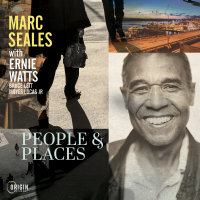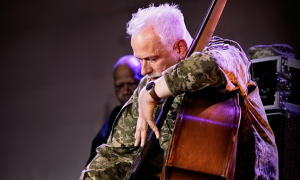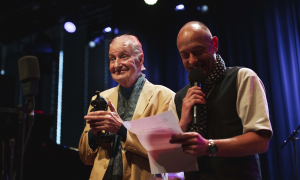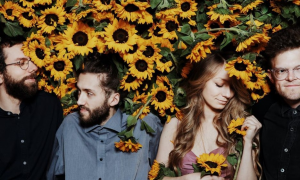Home » Jazz Articles » Profile » The Emergence of Jimmy Lyons
The Emergence of Jimmy Lyons
Cecil Taylor
piano1929 - 2018
This past spring, Jimmy's first record under his leadership, Other Afternoons on the French BYG label, was released and it should make anyone who can get hold of it take serious notice—not only of his increasing mastery of the alto saxophone, but also of his newly revealed and exceptional talent as a composer. The album is highly charged and demonstrates Jimmy's capacity to play and write with a startling rhythmic energy, a strong sense of melody, and a near-to-excruciating lyricism. He's accompanied on the record by three first-rate musicians, trumpeter Lester Bowie, who makes fierce and electrifying music and two colleagues from Taylor's unit,
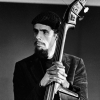
Alan Silva
bass, acousticb.1939

Andrew Cyrille
drumsb.1939
Born in Jersey City, December 1, 1933, Jimmy began playing alto when he was in high school. "At the time, and mostly from records, I was into

Ernie Henry
saxophone, alto1926 - 1957

Dexter Gordon
saxophone, tenor1923 - 1990

Wardell Gray
saxophone, tenor1921 - 1955

James Moody
woodwinds1925 - 2010

Elmo Hope
piano1923 - 1967

Bud Powell
piano1924 - 1966

Thelonious Monk
piano1917 - 1982
"In 1959 I met a cat named Rudy Rutherford. He wasn't as modern as some of the cats I was playing with, but he said, 'C'mon, I'll teach you how to play the saxophone.' I needed to learn and he showed me a few things. He was very helpful.
"A year later I met Cecil. I was playing with a bassist at a club called Raphael's on Bleecker Street. Cecil worked opposite us on weekends. He had

Archie Shepp
saxophone, tenorb.1937

Denis Charles
drums1933 - 1998
With Cecil, Jimmy was obliged to take a leap into a whole new methodology. "I had to reorganize my whole approach to music and break a lot of habits. That's not very easy to do. I'd spent about a year trying to get myself together scale-wise and key-wise and tune-wise. Then, all of a sudden, this other thing came up. It took me a little while to get myself together in Cecil's music, to stop thinking chord-wise and to think about linking idea to idea. Like on the [Gil Evans Orchestra] Into the Hot album (Impulse, 1961), I didn't feel I was playing as well as I should be."
If Jimmy's work on Into the Hot was uncertain and tentative (and still more imitative of

Charlie Parker
saxophone, alto1920 - 1955
In my conversation with Jimmy I posed a number of questions at random. His comments on various aspects of his approach and aesthetic, as well as the New Music and the current scene in general, follow.
His influences: "Well, of course there was Bird and there is Cecil. Also, I really dug

Sonny Rollins
saxophoneb.1930

Jackie McLean
saxophone, alto1932 - 2006
His procedure: "Music has come to me to be an abstract thing. I don't try to imitate sounds like birds, or give a direct symbol of the sky or anything like that. I try to just let the music come out of myself without giving any special meaning in front. I might think about what it might symbolize after I play it, but not before. It's more innate with me than deliberate."
The New Music and bebop: "Bebop was very romantic in a sense. It talked about heroic actions—things to do politically as well as musically, rather than doing it now. Of course Bird got to some things, and a lot of the cats who are playing today aren't as modern as he was. When I say 'modern,' I mean using techniques that are indigenous to the modern school, like wide skips or things of that nature. But basically bebop was about the idea of doing what had to be done, rather than actually doing it. Now we're doing it."
The meaning of freedom: "When we talk about 'free jazz' it doesn't mean that you play whatever pops into your head. It just means greater freedom of choice, and not being tied to some previous cat or things like chord structures."
The jazz continuum: "To move to the next step you have to have a knowledge of tradition—of the tradition of the black aesthetic—to have heard all of the things of the past and to truly have been moved by them. I don't mean just checking them out, but having been really moved by them."
Rock: "Rock is dealing with a lot of electricity. You hear a full orchestra playing, then a rock group with four pieces comes along and blows them all away because of all that electricity. But I spent a year in North Carolina and heard a lot of those blues singers and players, and my father was a good dancer who had a good collection of blues records. I feel I've absorbed what most of rock is about, and the point now is to go on. I really want to push forward rather than dwell on what's gone before."
"Classical" electronic music: "Much of it strikes me as bland. Of course, some of it would take a whole lot of fantastic blowing to get. But for me it lacks the human quality. When you hear a

John Coltrane
saxophone1926 - 1967
Finding a place to play: "It's obvious that clubs are not the right atmosphere. Guys go to a club to hit on some chick and the music comes along and pulls the whole thing apart. I prefer to play in schools or concert halls because I think the intensity of the music demands the full attention."
Finding an audience: "An audience will have to come through education. Black avant-garde music has to be inculcated into the ghetto, and schooling may accomplish that. I mean if you go to a white slum neighborhood where people live in utter poverty and you play them a record by Chopin, they'll say, wow, that's really something. They may not really like it, they may be being hypocritical, but they'll have a certain respect for it because they've been educated that way. This isn't true of black slum neighborhoods. There's no real respect for jazz. They haven't been taught in the schools that they should respect it. If it's taught in the schools they may not like it at first, but they will respect it and support it, and eventually they'll get to it."
I asked Jimmy about his plans for the future. "Of all the groups out there playing, I think I'm most satisfied playing with Cecil. Of course I'd also like to have my own context, to set up certain things and build up my own milieu. Like Coltrane. He's working out of his own thing, and he built it and built it and built it until it was overwhelming. In the last year and a half I've been doing a lot of composing—writing things down and putting them aside and developing them when I have the time. Often ideas pop up while I'm playing and I write them down later. I'm also learning things from composing that are changing my playing. Writing and composing can be two very different things, of course. I've met a lot of cats who compose some out-of-sight shit, but they can't play it at all. I want to be able to do both well. What I'd really like would be, say, to write for three months, then woodshed on it for six months, then play it in public for the next three months. Then I'd want to start fresh all over again with new material and ideas. Economics won't permit that, of course. But I want as best I can to keep moving from one area and context to another, to really get into one thing, get out of it, then get into another thing.
"I want to always be moving. Moving forward."
Tags
Jimmy Lyons
Profiles
Robert Levin
United States
Cecil Taylor
Alan Silva
Andrew Cyrille
Ernie Henry
Dexter Gordon
Wardell Gray
James Moody
Elmo Hope
Bud Powell
Thelonious Monk
archie shepp
Dennis Charles
Charlie Parker
Sonny Rollins
Jackie McLean
John Coltrane
Comments
PREVIOUS / NEXT
Support All About Jazz
 All About Jazz has been a pillar of jazz since 1995, championing it as an art form and, more importantly, supporting the musicians who make it. Our enduring commitment has made "AAJ" one of the most culturally important websites of its kind, read by hundreds of thousands of fans, musicians and industry figures every month.
All About Jazz has been a pillar of jazz since 1995, championing it as an art form and, more importantly, supporting the musicians who make it. Our enduring commitment has made "AAJ" one of the most culturally important websites of its kind, read by hundreds of thousands of fans, musicians and industry figures every month.







 Buy Now
Buy Now





